Meet Solène, a 26-year-old French expat who swapped the bustling streets of Paris for the serene landscapes of New Zealand on a Working Holiday Visa. With a background in theatre production, Solène embarked on this adventure to enhance her English skills and explore her passion for organizing cultural events, possibly even festivals. Her journey is not just about professional growth but also personal discovery, as she embraces the opportunities and experiences that come her way in a new country. Opting to travel by bus instead of owning a car, she shares the freedom and occasional challenges this choice brings, from navigating job opportunities to exploring remote hiking trails. Dive into Solène's story to see how her year abroad unfolds, filled with unexpected adventures and the simple joy of meeting new people. Will her travels reshape her career path or open new doors? Read on to find out how her journey evolves.
pvtistes
Hi Solène, can you introduce yourself?
Hello Pamela 🙂 My name is Solène and I’m 26. Before moving to New Zealand, I worked as a production manager for a theatre company in Paris. I studied theatre production and the organisation of cultural events, also in Paris. I’d very much like to work in the organisation of multidisciplinary festivals, but I’ll have to see if this desire changes during my trip, but I’m open to any opportunity. I’m quite inquisitive by nature and like to try out new things, so I’m thinking that this year on the other side of the world might open doors for me that I’d never imagined.
pvtistes
You decided to go to New Zealand on a WHV, why this project and why New Zealand?
Like many people I think, my main motivation was to learn English and become bilingual. But beyond the language aspect, I was also keen to experience an adventure outside the routine of study and work. Originally, I wanted to leave between my bachelor’s and master’s degrees, but it happened just at the start of the pandemic. Luckily, I hadn’t prepared anything, so I was able to postpone everything. In the end, it was a good thing as it allowed me to finish my studies and to get a first professional experience. Above all, it increased my motivation to set off alone to the other side of the world. I really felt the need to experience something different, to discover another country and to have some time for myself. As for the choice of country, for as long as I can remember I’ve wanted to discover New Zealand and its wide open spaces. I also thought that if I was going to be away for a year, I might as well go far away. And finally, I wanted to go to a country that was easy to visit in a year, and New Zealand seemed more appropriate than Australia for that.
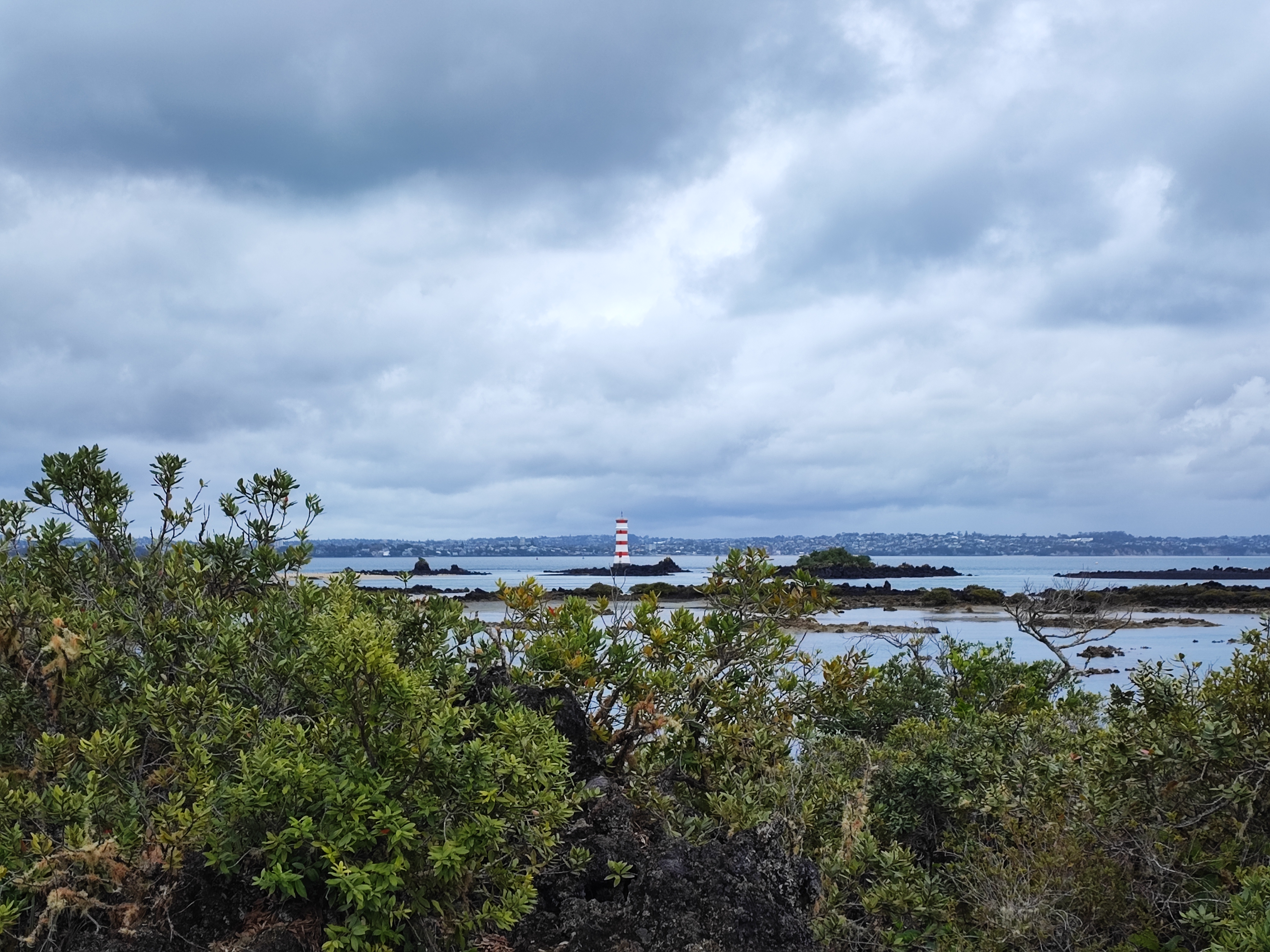

pvtistes
Why did you decide to travel around New Zealand by bus?
That’s a good question. It’s a choice I’ve had a lot of doubts about, especially as my departure date approached. I simply did not want to have the mental load of owning a car. Even though having a car in New Zealand has its advantages, for me it was mainly a constraint. First of all, you have to pay the price for a decent car, and even if you can find cheap cars, it’s still a budget that would have forced me – for my part – to work straight away on arrival, which I absolutely wanted to avoid. Secondly, I don’t feel confident enough about mechanics to deal with any problems that might arise. And lastly, even though that may sound a bit silly, I find driving quite stressful. At least with the bus, I don’t have that anxiety!
I also like the fact that if I want to go to the Pacific Islands or even cross New Zealand quickly, I won’t have to worry about what to do with my car. And last but not least, I don’t necessarily enjoy driving. I can find it interesting from time to time and do it if I have no choice, but in the long run I find it tiresome (despite the very beautiful roads in New Zealand).
So there you have it, all these arguments put together pushed me to think about another way of travelling in New Zealand. It wasn’t easy to find information and testimonials on how to travel by bus in New Zealand, so I had a lot of questions. Fortunately, my sister, who had already spent a few months in New Zealand, reassured me that it was possible to travel this way. But I found it frustrating to find so little information about it.
In the end, I feel more free without a car and I am very happy with my decision.
I also like the fact that if I want to go to the Pacific Islands or even cross New Zealand quickly, I won’t have to worry about what to do with my car. And last but not least, I don’t necessarily enjoy driving. I can find it interesting from time to time and do it if I have no choice, but in the long run I find it tiresome (despite the very beautiful roads in New Zealand).
So there you have it, all these arguments put together pushed me to think about another way of travelling in New Zealand. It wasn’t easy to find information and testimonials on how to travel by bus in New Zealand, so I had a lot of questions. Fortunately, my sister, who had already spent a few months in New Zealand, reassured me that it was possible to travel this way. But I found it frustrating to find so little information about it.
In the end, I feel more free without a car and I am very happy with my decision.
pvtistes
How is that going? Is it easy to travel by bus in New Zealand
The main bus company in New Zealand is Intercity. It serves many towns on the North and South Islands. It is possible to buy hour passes (flexipass), which can then be used to book the journeys you want via their website. I find it very simple to use, you just need to identify the possible journeys between the cities in advance and book. However, I can’t say whether you need to book a long time in advance or whether the last minute works well, because at the moment I’ve always planned my trips more or less in advance.
It is therefore very easy to travel from towns to towns. When it comes to accessing more remote areas, things can get more complicated, although buses also serve tiny villages in the middle of nowhere. For some places, I don’t necessarily find this a problem because it’s easy to get to the countryside from the city and sometimes the city bus network can even take you there (I’m thinking in particular of the Otago Peninsula, which is served by a bus). Even in Auckland it’s possible to escape into nature without needing a car, you just have to go to Waiheke Island (which has its own bus network) or Rangitoto Island! Even so, some hiking trails are much easier to access by car.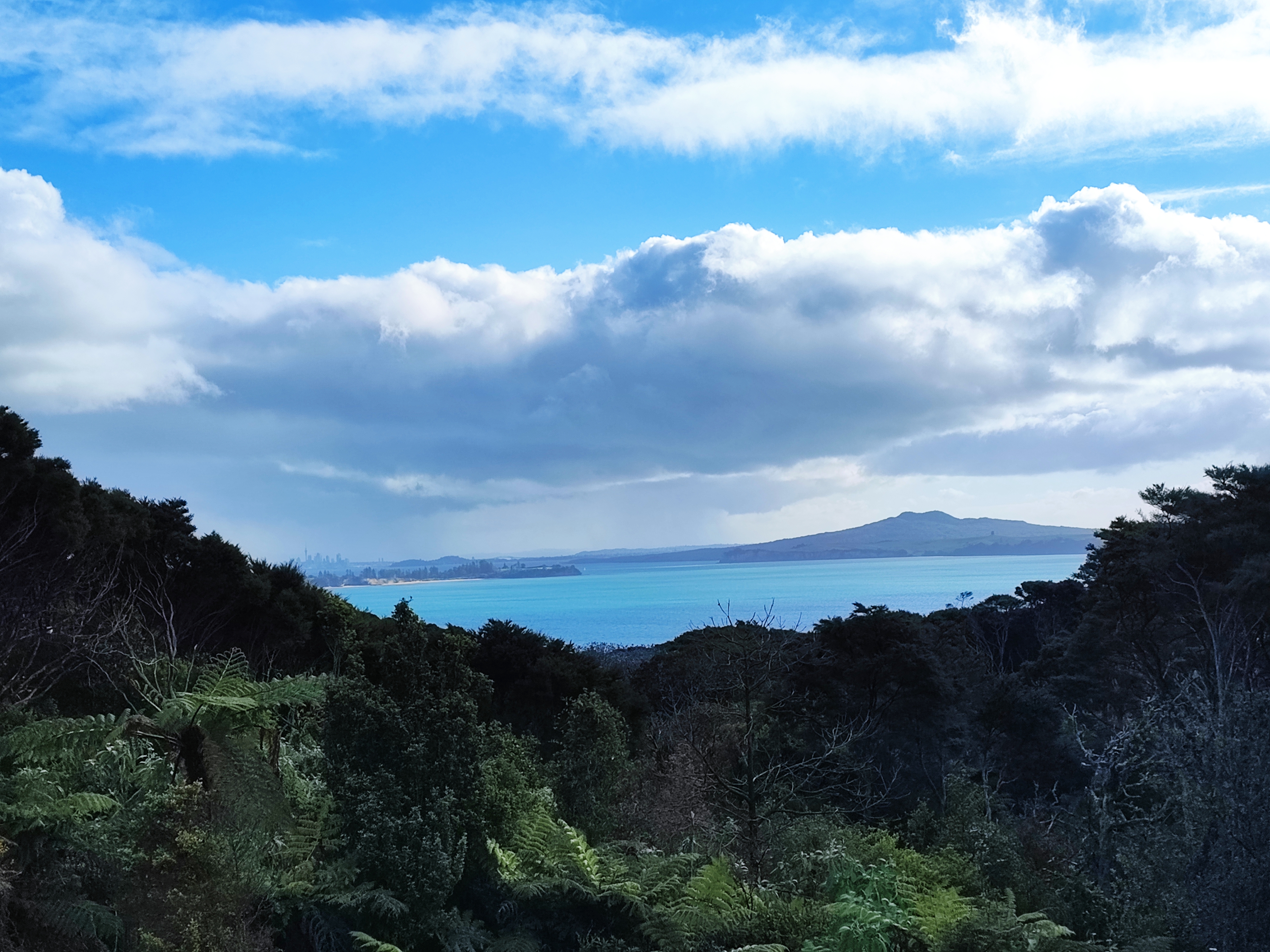
After that, it’s up to each person to adapt their journey according to their mode of transport. And just because a place is only accessible by car doesn’t mean it’s not accessible to people without a car. You just have to find other ways of getting there. I think the fact that you don’t have a car encourages you to be more inventive about how you travel. The bus is one solution that works very well and is reassuring, but there are plenty of others. For example, hitchhiking works quite well here (and having tested it between Invercargill and Queenstown I can confirm this). You can also find people offering rides or looking for travel mates on Facebook. If you have your driving license, it is also possible to rent a car from time to time to travel around a more isolated place. And there are even car rental companies that offer very, very good prices on their cars to take you from point A to point B. I was able to get 5 days free (apart from paying for petrol) with a hire car to drive from Queenstown to Picton, which was great. Finally, to return to the bus, some companies offer organised tours. This is the case with Intercity, which offers trips to Cape Reinga, Hobbiton and Milford Sound, with planned stops to take photos and enjoy the scenery once you’re there. You can even take the ferry between the two islands with your flexipass. It’s a very practical solution, and all New Zealand’s major points of interest can be reached by bus.
It is therefore very easy to travel from towns to towns. When it comes to accessing more remote areas, things can get more complicated, although buses also serve tiny villages in the middle of nowhere. For some places, I don’t necessarily find this a problem because it’s easy to get to the countryside from the city and sometimes the city bus network can even take you there (I’m thinking in particular of the Otago Peninsula, which is served by a bus). Even in Auckland it’s possible to escape into nature without needing a car, you just have to go to Waiheke Island (which has its own bus network) or Rangitoto Island! Even so, some hiking trails are much easier to access by car.

After that, it’s up to each person to adapt their journey according to their mode of transport. And just because a place is only accessible by car doesn’t mean it’s not accessible to people without a car. You just have to find other ways of getting there. I think the fact that you don’t have a car encourages you to be more inventive about how you travel. The bus is one solution that works very well and is reassuring, but there are plenty of others. For example, hitchhiking works quite well here (and having tested it between Invercargill and Queenstown I can confirm this). You can also find people offering rides or looking for travel mates on Facebook. If you have your driving license, it is also possible to rent a car from time to time to travel around a more isolated place. And there are even car rental companies that offer very, very good prices on their cars to take you from point A to point B. I was able to get 5 days free (apart from paying for petrol) with a hire car to drive from Queenstown to Picton, which was great. Finally, to return to the bus, some companies offer organised tours. This is the case with Intercity, which offers trips to Cape Reinga, Hobbiton and Milford Sound, with planned stops to take photos and enjoy the scenery once you’re there. You can even take the ferry between the two islands with your flexipass. It’s a very practical solution, and all New Zealand’s major points of interest can be reached by bus.
pvtistes
Budget-wise, how expensive is it to travel by bus in New Zealand?
The most expensive part is accommodation. For my part, I opted to sleep in hostels during the first part of my trip, because there are always some in towns served by bus, and it’s often the cheapest and easiest solution. But it’s true that in the long run, it does represent a certain budget, and the price per night can change drastically depending on the city you’re in. I’ve seen youth hostels offering dormitory beds for €40, which I think is excessively expensive. But I’ve also seen hostels offering beds for €14 a night. It can really change dramatically depending on the geographical area, the time of year and how early you book. I’d say you need to set aside a small budget to be able to find accommodation without too much stress, but also be prepared to adapt your trip according to prices and accept that you may have to stay a little less time in one place if the cost of the night is too high.
But here again, there are alternatives such as camping, which can mean cheaper accommodation in some places. Sometimes it’s worth it, sometimes it’s not. There is also a DOC campsite pass which costs NZ$195 a year and gives free access to a large number of campsites. The main difficulty here is that these campsites are not often accessible by bus, so this solution is not necessarily the most suitable for people who want to travel by bus. But it’s also a way of saving money. I met a German who travels mainly by bus and hitchhiking and who manages to sleep in his tent every night, so it must be feasible. I originally thought I’d go camping as soon as the warm weather arrived, but in the end I quickly realised that I’d rather stay in a youth hostel because it’s easier to meet people. And finally, even though I love camping, I find that it’s better with more than one person, but I can’t get the idea of camping out of my head during my trip!
For the price of the bus, I chose a 80-hour flexibass which costs about 300 euros and is valid for one year. I think that’s pretty fair for the journeys it allows you to make. So far in 3 months of travel I’ve already used 36 hours and I’ve been able to visit Northland and a large part of the South Island, which I think is quite fair.
But here again, there are alternatives such as camping, which can mean cheaper accommodation in some places. Sometimes it’s worth it, sometimes it’s not. There is also a DOC campsite pass which costs NZ$195 a year and gives free access to a large number of campsites. The main difficulty here is that these campsites are not often accessible by bus, so this solution is not necessarily the most suitable for people who want to travel by bus. But it’s also a way of saving money. I met a German who travels mainly by bus and hitchhiking and who manages to sleep in his tent every night, so it must be feasible. I originally thought I’d go camping as soon as the warm weather arrived, but in the end I quickly realised that I’d rather stay in a youth hostel because it’s easier to meet people. And finally, even though I love camping, I find that it’s better with more than one person, but I can’t get the idea of camping out of my head during my trip!
For the price of the bus, I chose a 80-hour flexibass which costs about 300 euros and is valid for one year. I think that’s pretty fair for the journeys it allows you to make. So far in 3 months of travel I’ve already used 36 hours and I’ve been able to visit Northland and a large part of the South Island, which I think is quite fair.
pvtistes
What about when you’re working? How do you get around?
Travelling by bus automatically eliminates certain types of job. It’s not uncommon to find job offers – or volunteering – that mention that you need a car to apply. Often it’s because the job is so far away – mostly on a farm – or for practical reasons. In these cases, I don’t even look at what the job entails and just scroll straight down. In my opinion, this isn’t really a problem because there are plenty of job offers accessible to people travelling by bus. It’s just an initial screening. For jobs on a kiwi or avocado farm, it’s often specified that it’s better to have a car, but on the application forms it’s possible to specify whether or not you have a vehicle. I don’t know to what extent this affects recruiters’ choices. Personally, I’ve never received a reply, so I suppose they prefer people who can get around more independently, but that’s just a theory.
In any case, I don’t think that travelling by bus makes it any more difficult to find a job. It just adds a selection criterion for the employer and the employee. For my part, I didn’t work at all during the first 3 months of my trip, so I didn’t have any problems there. And when I started looking for a job, only one recruiter offered me a face-to-face interview, otherwise it was by video or telephone. In the end, I was hired at a motel in Picton and the employer understood very well that I needed a bit of time to get to him. I think it’s legitimate as backpackers to explain that you may need time to get to work and that employers who hire travellers should be able to understand that. If they don’t, then maybe it’s just not a good idea to take the job.
Naturally, when I was looking for a job, I thought about apply for jobs in cities that are interesting if you don’t have a car, because I didn’t want to be locked in a city for several months and end up with nothing to do apart from work. Personally, my main criterion was to be able to swim and enjoy the beach during the summer. So I’m very happy to be in Picton. In the end, when I did a bit of research, I found that I could get around just as easily, by bus, train or ferry. And what’s more, my employers can lend me their car if I need it.
In any case, I don’t think that travelling by bus makes it any more difficult to find a job. It just adds a selection criterion for the employer and the employee. For my part, I didn’t work at all during the first 3 months of my trip, so I didn’t have any problems there. And when I started looking for a job, only one recruiter offered me a face-to-face interview, otherwise it was by video or telephone. In the end, I was hired at a motel in Picton and the employer understood very well that I needed a bit of time to get to him. I think it’s legitimate as backpackers to explain that you may need time to get to work and that employers who hire travellers should be able to understand that. If they don’t, then maybe it’s just not a good idea to take the job.
Naturally, when I was looking for a job, I thought about apply for jobs in cities that are interesting if you don’t have a car, because I didn’t want to be locked in a city for several months and end up with nothing to do apart from work. Personally, my main criterion was to be able to swim and enjoy the beach during the summer. So I’m very happy to be in Picton. In the end, when I did a bit of research, I found that I could get around just as easily, by bus, train or ferry. And what’s more, my employers can lend me their car if I need it.
pvtistes
Is it easy to meet people when you travel by bus?
Yes. I don’t have much to compare it with, so I can’t say whether it’s easier than in a car or a van, but quite honestly travelling by bus in no way prevents you from meeting new people. Most of my encounters were in the hostels where I stayed or during the organised activities/tours I did. I didn’t meet many people during my various bus journeys, but it has to be said that it wasn’t often crowded. Overall, it’s quite easy to meet people in New Zealand, no matter what means of transport you choose, as many people go on a WHV every year and visit New Zealand with the same aim. What I find the most difficult – and this has nothing to do with travelling by bus – is mainly to be able to anchor these friendships in the long-term because the fact of moving regularly means that they often remain very ephemeral.
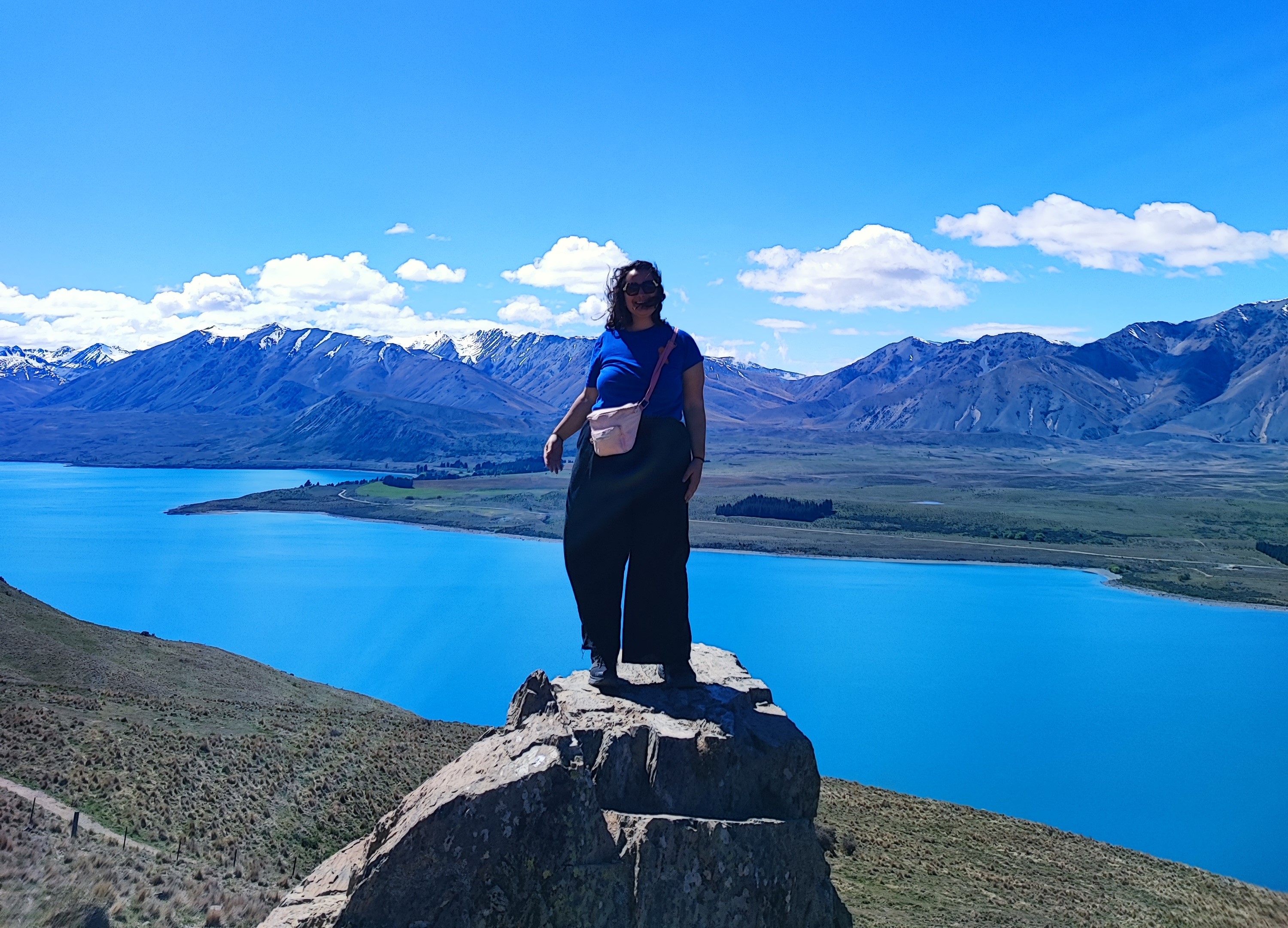

pvtistes
What are the advantages/ disadvantages of travelling by bus in New Zealand?
The main disadvantage of travelling by bus is that you need time. I wouldn’t recommend this way of travelling to someone only staying a few weeks in New Zealand, for example. Some journeys that take 2 hours by car can take twice as long by bus. So you need to be patient and accept the fact that you’ll be travelling more slowly. Buses also sometimes require you to make detours, as they don’t take all the routes. I’m thinking in particular of the time when I wanted to get to Queenstown from Invercargill. Google Maps told me that it was possible to get there in 2.5 hours by car using a direct route, but when I looked on Intercity, I had to go back via Dunedin and take the bus twice for 4 hours. Obviously, I didn’t have the courage to take that many hours by bus, so I opted for the hitchhiking solution, but I found it rather restrictive and stressful. In the end it turned out to be a very good experience, but it clearly took me out of my comfort zone. You also have to bear in mind that when travelling by bus, you’re dependent on the bus timetable; if it leaves early in the morning, you have to get up at the crack of dawn, and if it leaves in the afternoon, you have to check if you can check in at the hostel at the time of arrival. Nothing too complicated, but it does require a certain amount of organisation.
Apart from that, and as I mentioned above about accessibility, I can’t really see any other disadvantages. I think it’s really up to each person to find their own way of travelling. As far as I’m concerned, these disadvantages are by no means prohibitive, but they can be for some people.
In terms of advantages, as I said earlier, for me travelling by bus gives me a strong feeling of freedom. I don’t have to think about mechanics, fuel, parking, roads and so on. I feel lighter and I have the impression that it encourages me to be more open and to try new things. I like the idea of saying to myself that it’s just me and my backpack and that for the rest I improvise. New Zealand’s roads are also very beautiful, and with their large windows the buses really let you enjoy the scenery. It’s a pleasure for the eyes to travel this way without having to concentrate on the road. And finally, even if I’m talking about it as a disadvantage, personally I love the fact that I have to take my time.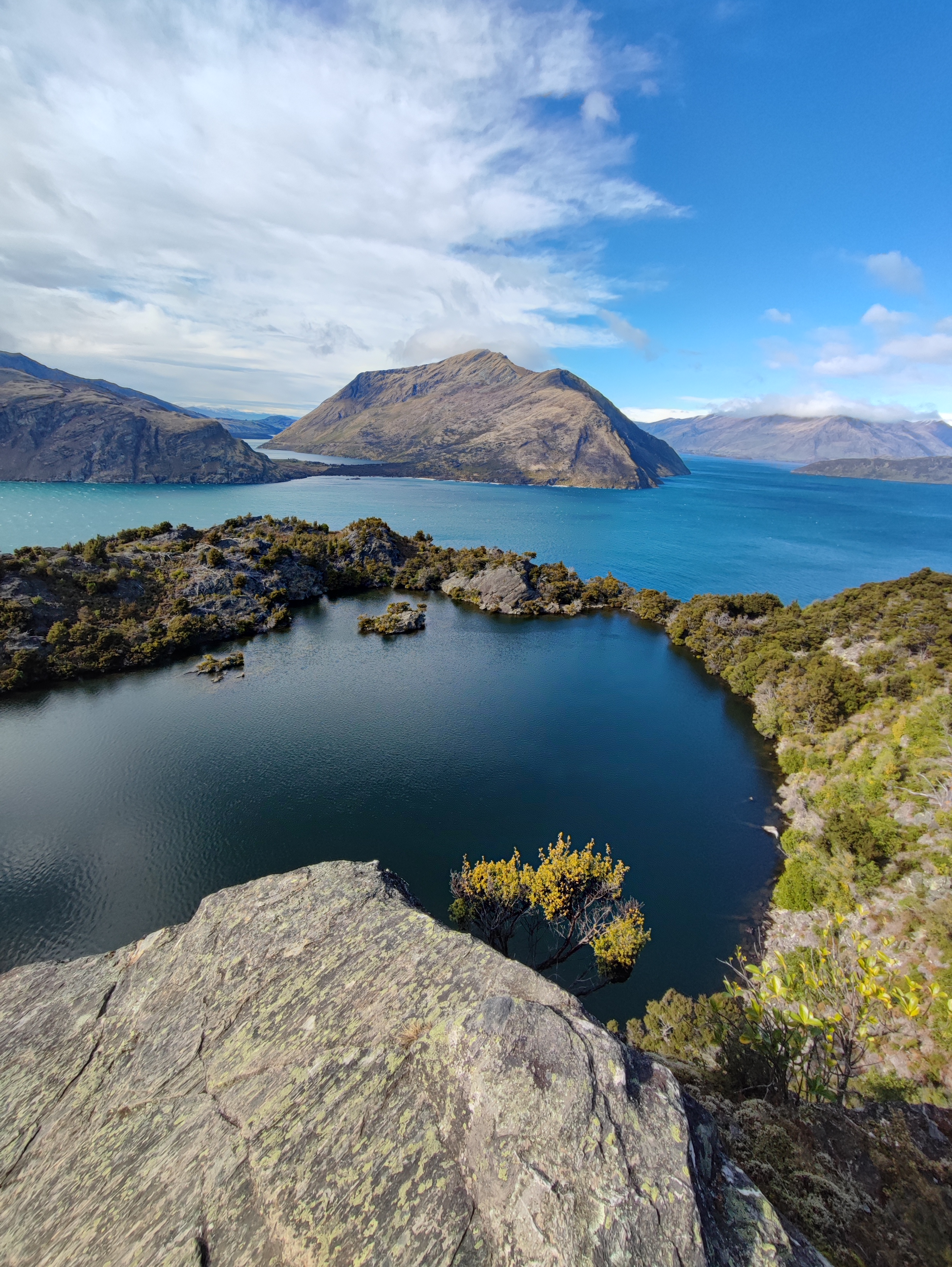
Apart from that, and as I mentioned above about accessibility, I can’t really see any other disadvantages. I think it’s really up to each person to find their own way of travelling. As far as I’m concerned, these disadvantages are by no means prohibitive, but they can be for some people.
In terms of advantages, as I said earlier, for me travelling by bus gives me a strong feeling of freedom. I don’t have to think about mechanics, fuel, parking, roads and so on. I feel lighter and I have the impression that it encourages me to be more open and to try new things. I like the idea of saying to myself that it’s just me and my backpack and that for the rest I improvise. New Zealand’s roads are also very beautiful, and with their large windows the buses really let you enjoy the scenery. It’s a pleasure for the eyes to travel this way without having to concentrate on the road. And finally, even if I’m talking about it as a disadvantage, personally I love the fact that I have to take my time.

pvtistes
Can you tell us about a highlight / good memory in New Zealand?
One of my most memorable moments was my second night on Stewart Island. I was at the youth hostel, brushing my teeth, and I saw a cloud in the sky that looked a bit strange, that didn’t really look like a cloud. I remember the hostel receptionist telling me about the high probability of seeing southern lights that night, so I quickly took out my phone to try and take a photo and saw that it was indeed southern lights! I quickly decided to go to the viewpoint that the lady at the hostel had recommended so that I could get a better look at the aurora, and what a sight it was! It was magical. Then the clouds rolled in and people started to leave, leaving me alone to hope for one last glimpse before going home to sleep. Just then, a lady who lives on the island arrived and started chatting to me, then asked me if I’d ever seen kiwis in the wild. I told her I hadn’t and a few minutes later I got into her car to look for wild kiwi. In the end, we spent an hour and a half in the middle of the night pacing the island’s roads. Just as we were beginning to give up on the idea of seeing any, Sharon – her name – suggested that we stop at Lee Bay to see The Anchor Stone. And that’s when I saw my very first tiny kiwi! I was so happy. In just one night I was able to see my first aurora australis and my first kiwi in the wild – it’s incredible!
And finally – much to my delight – a few days later, a huge kiwi came running at me as I was returning to the hostel. I was even able to take a video of it, and it wasn’t shy at all.
And finally – much to my delight – a few days later, a huge kiwi came running at me as I was returning to the hostel. I was even able to take a video of it, and it wasn’t shy at all.

pvtistes
And a bad one?
Fortunately for me, and I hope it stays that way, I don’t really have any bad memories of New Zealand. I would say that my road trip to the Catlins is my least favourite experience so far. I was based in Invercargill – which I found quite a depressing town – and decided to hire a car over two days so I could explore the Catlins as I couldn’t see how else to do it and wanted a reliable transport solution. I based my itinerary on the book Women at the End of the World and the recommendations of the hostel receptionist. In the end, it rained a lot in the days leading up to this mini road trip, so some of the roads were closed, which made things a bit difficult for me. I was still able to do most of what I’d planned, but I think my expectations were too high and I wasn’t quite as amazed as I’d expected. But I think it’s really the context of the weather and the fact that I wasn’t necessarily at my best mentally at the time that gave me that memory. I wouldn’t mind going back in more ideal conditions.
pvtistes
What advice would you give to others who would like to travel by bus in New Zealand?
My advice for people who want to travel by bus is not to get discouraged! Even if everyone says it’s easier by car, even if it’s difficult to find information about travelling by bus, even if it seems impossible at times, it’s not true. Travelling by bus is perfectly feasible and offers just as many great experiences as car or van owners. The important thing is to find a way of travelling that suits you, not the others. And in the worst-case scenario, you can always change your mind and your mode of transport during the journey.
pvtistes
And now, what are your projects?
I’m going to work for 3 months in a motel in Picton before going on a 3-week roadtrip with a friend who’s visiting me from France. Then, in theory, I’ll finish my trip by bus, but on the North Island this time!
pvtistes
Any final words?
Thank you for all the valuable information you make available to working holiday makers! It’s really invaluable to have access to a source of information like this to help you prepare for your trip – and even during your trip. It’s so reassuring.












 Français
Français English
English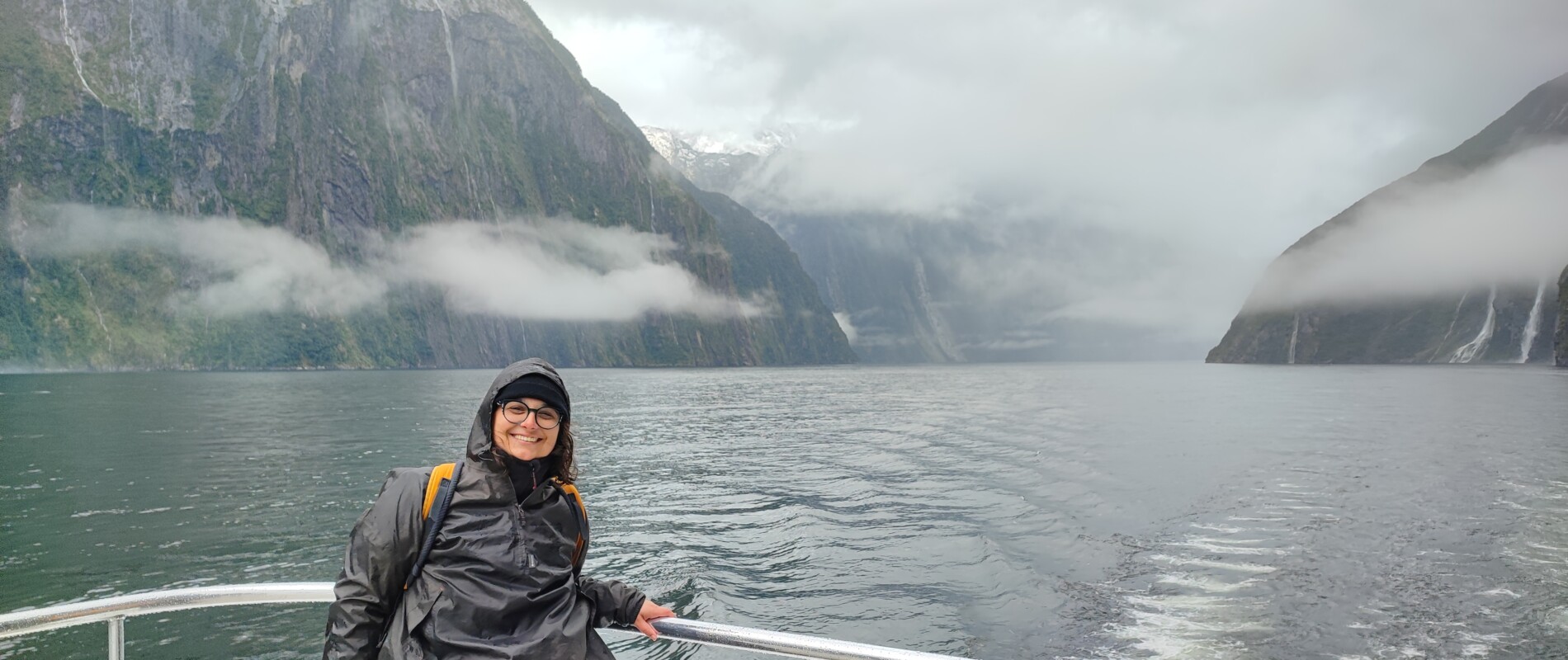



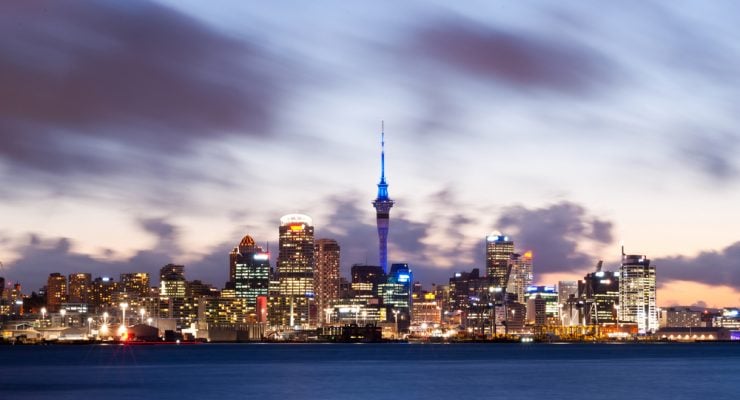
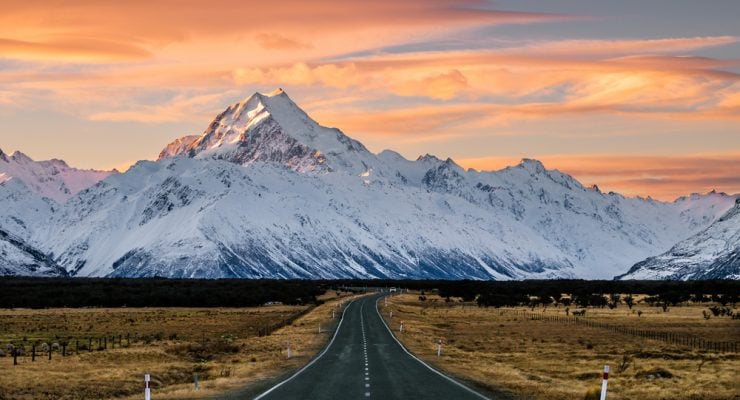

0 comments
{{like.username}}
Loading...
Load more